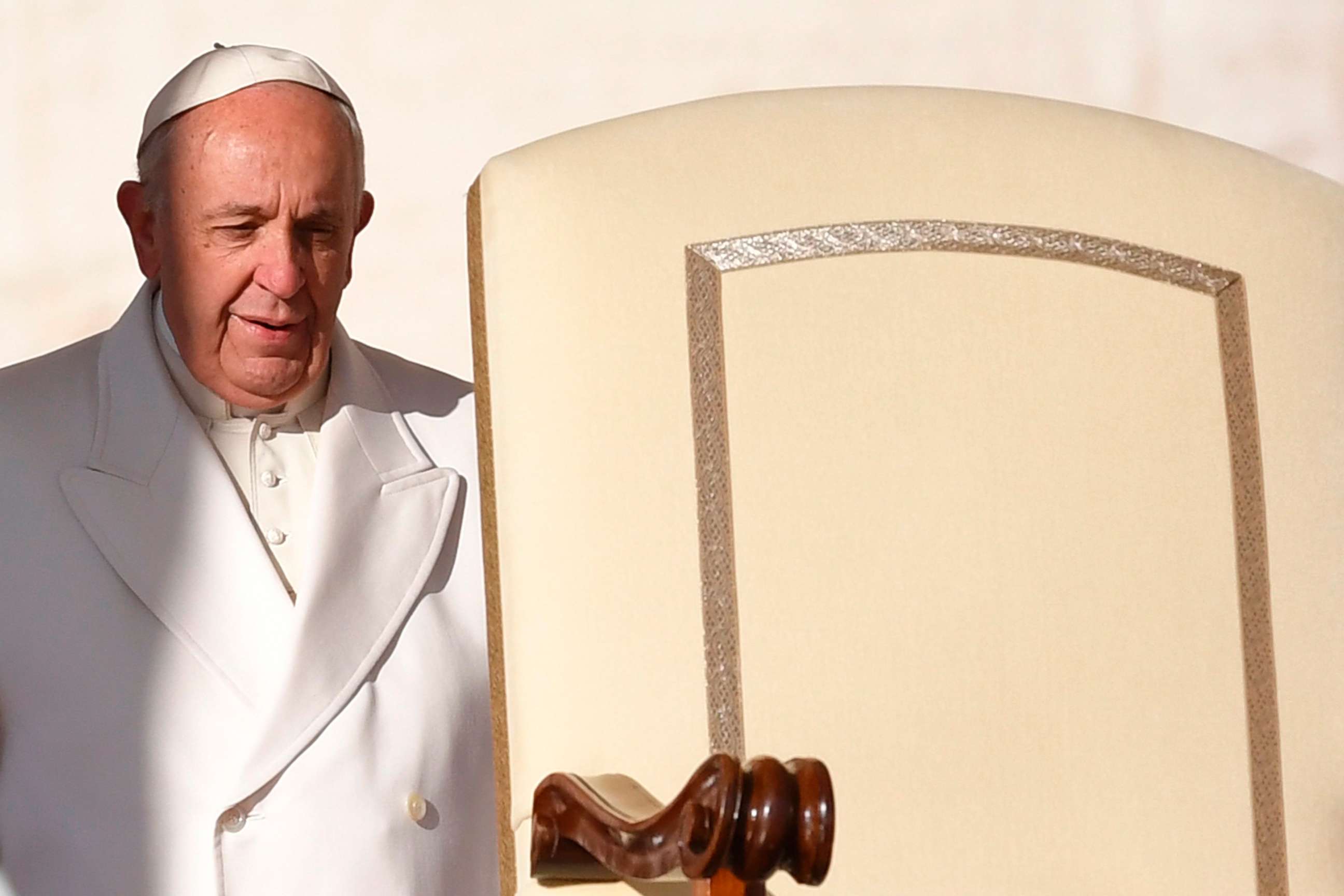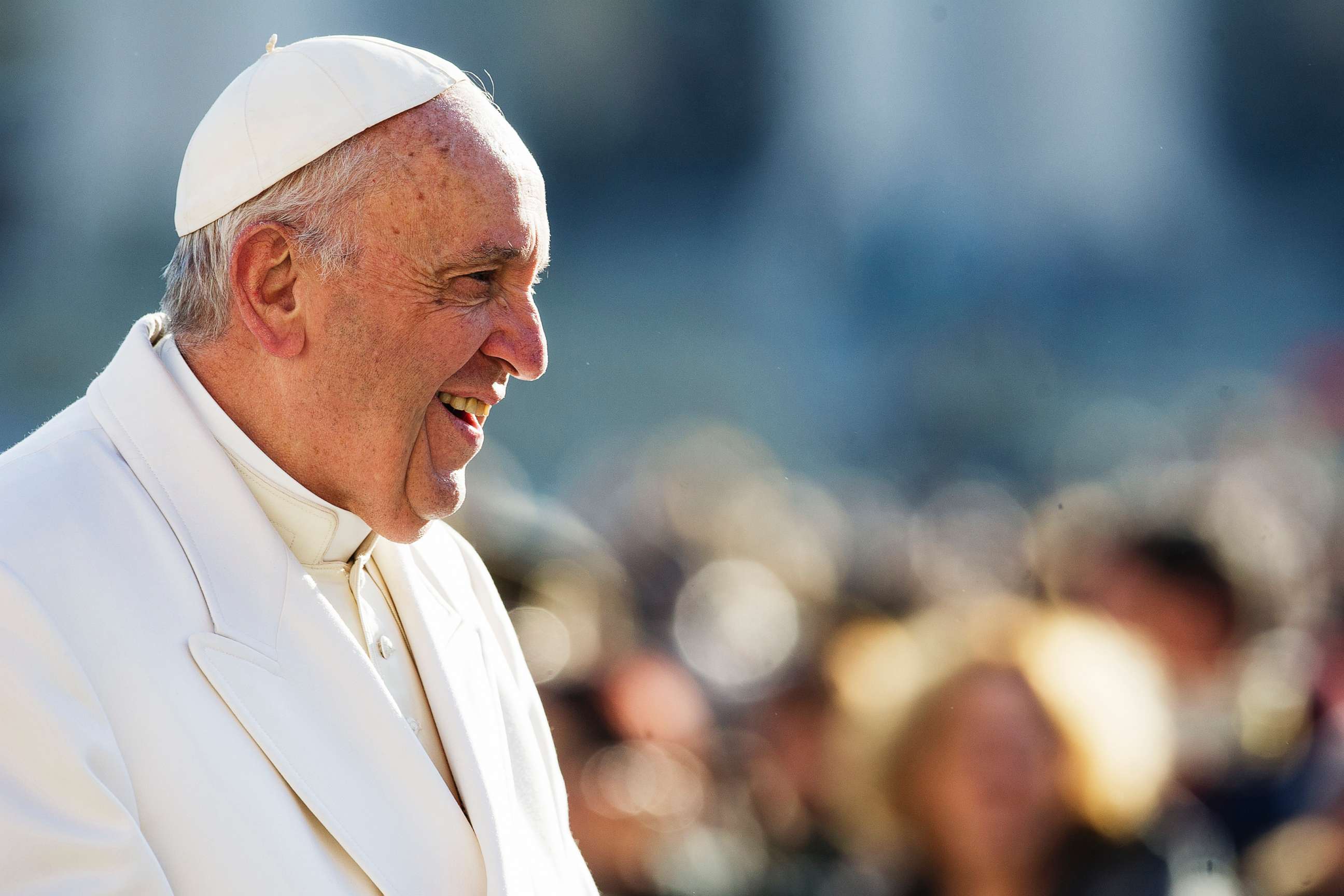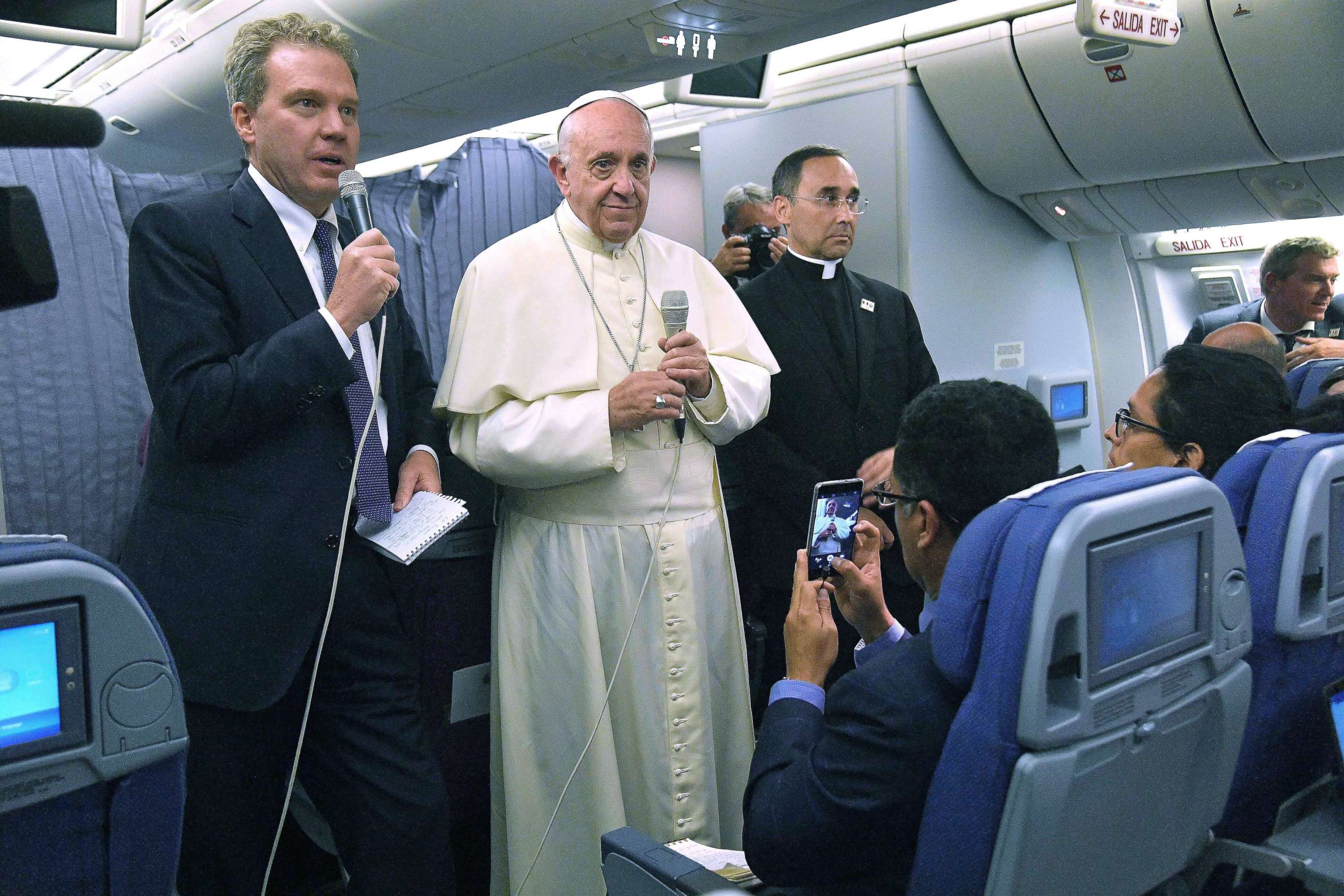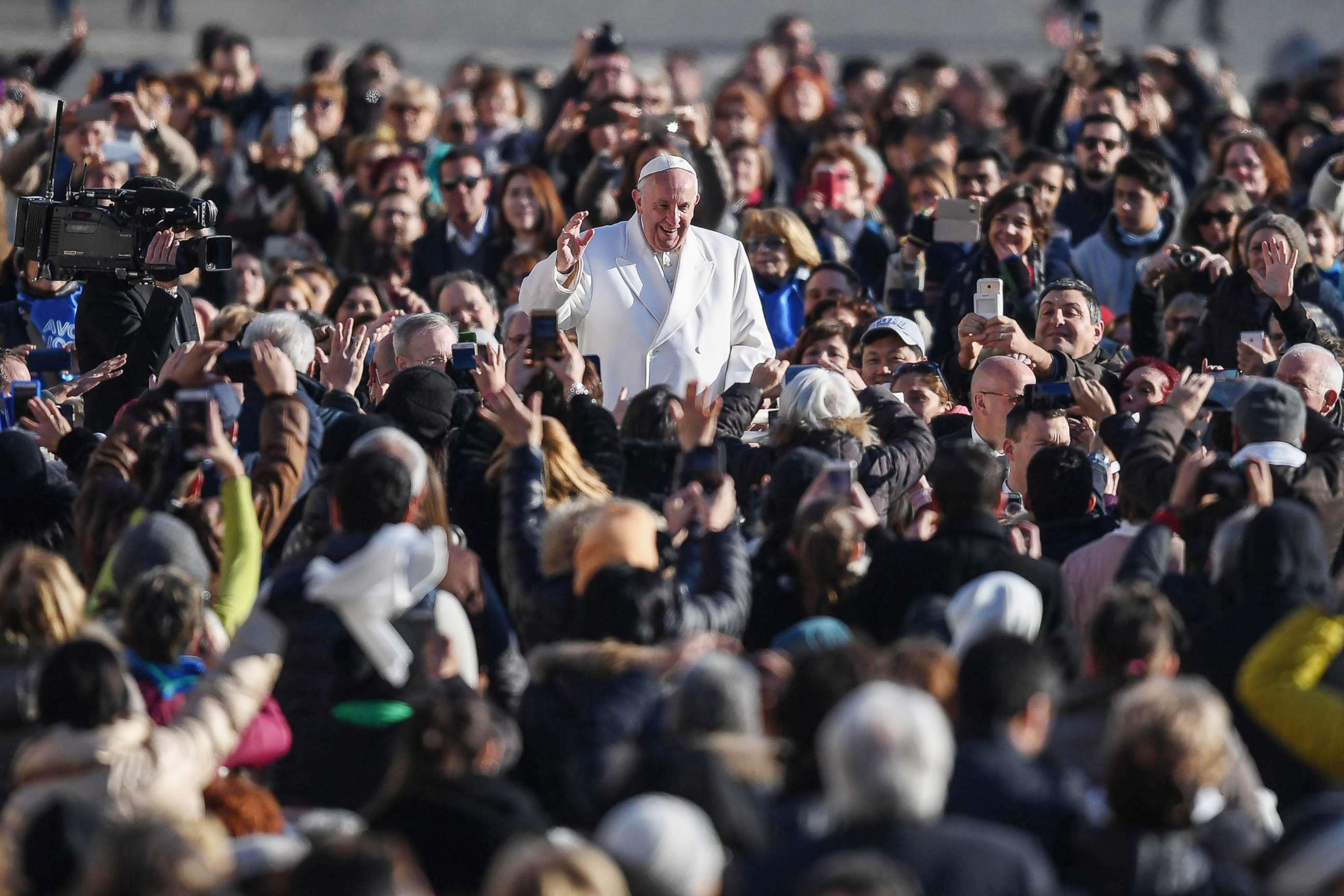Pope Francis denounces 'fake news,' calls on journalists to 'communicate the truth'
Pope Francis said "fake news" leads to the "the spread of arrogance and hatred."
ROME -- Pope Francis on Wednesday denounced the spread of "fake news" as evil, saying the "weighty responsibility" to stem misinformation "rests on the shoulders" of journalists.

In advance text released for his message for World Communications Day 2018, the pontiff urged everyone to “promote a journalism of peace” and one that “is opposed to falsehoods, rhetorical slogans, and sensational headlines.”
He added that journalists bear the burden of making sure fair and accurate reporting cuts through the clutter.
“If responsibility is the answer to the spread of fake news,” he added, “then a weighty responsibility rests on the shoulders of those whose job is to provide information, namely, journalists, the protectors of the news.”

Pope Francis, an ardent critic of false reporting, called for a shared commitment to rediscovering "the dignity of journalism and the personal responsibility of journalists to communicate the truth.”
"Fake news" drew national attention during the 2016 presidential elections when then-Republican-candidate Donald Trump used it against media companies he believed were covering him unfairly.

This is not the first time the pontiff has scolded those who spread false news reports. He called it a “very serious sin” that not only hurts those who have been slandered but also hurts journalism itself.
The advance message with the theme of the “Truth Will Set You Free” was released on the Catholic feast day of Francis de Sales, the patron saint of journalists. It will be shared in congregations around to world on May 13 when the church celebrates World Communication Day 2018.

Pope Francis reminded Catholics that Pope Paul VI in 1972 used the message of truth for the same event and that it remains just as relevant today. He urged people to try and avoid being exploited by fake news, which only leads to “the spread of arrogance and hatred.”
The text outlines the definition and use of “fake news” and how congregants can recognize fictional information and not [to] be afraid to challenge it.
“None of us can feel exempted from the duty of countering these falsehoods,” he wrote.



